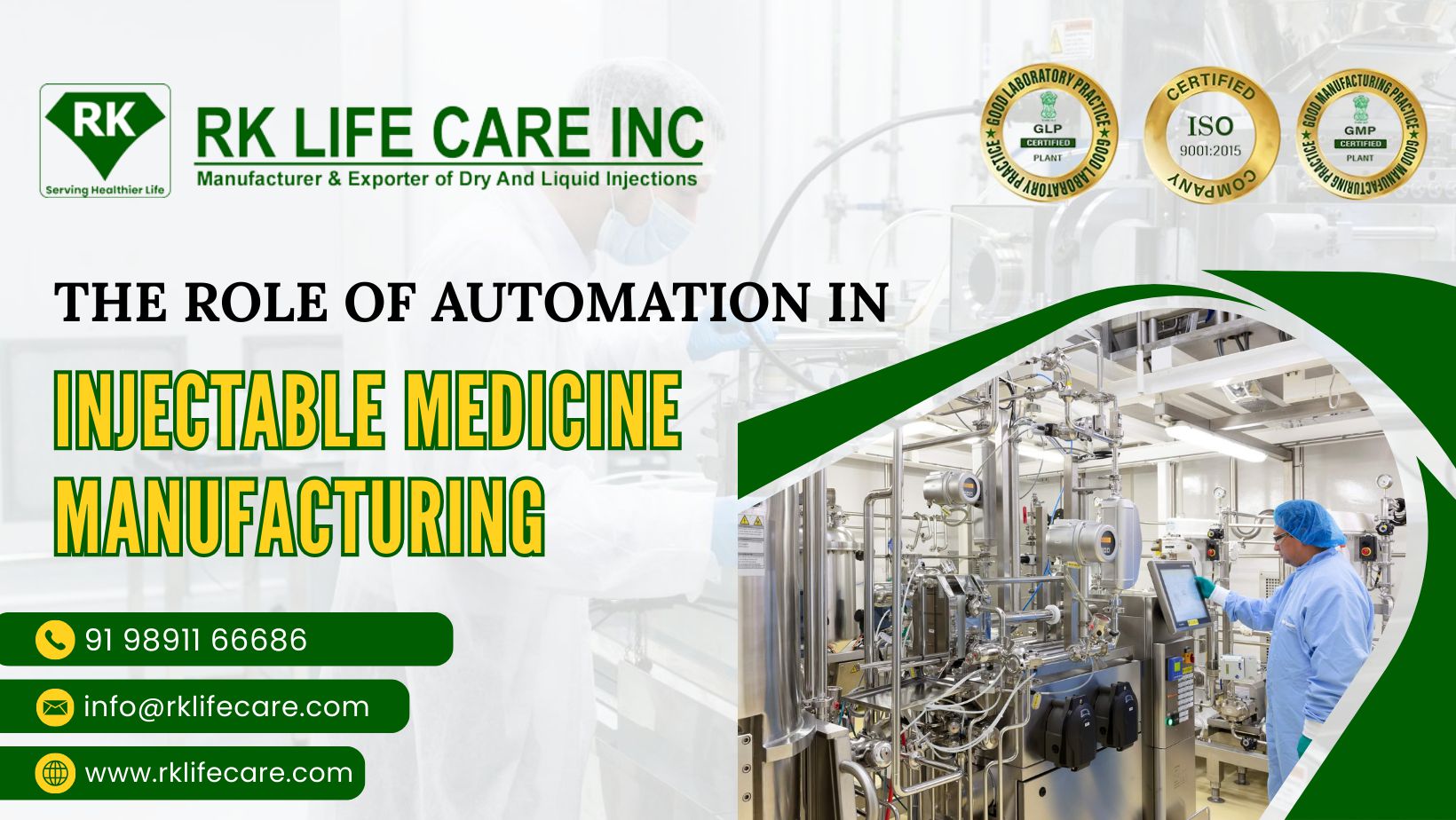
In today's rapidly changing pharmaceutical environment, efficiency, accuracy, and quality are more crucial than ever. At RK Life Care Inc, we understand that meeting global healthcare needs requires cutting-edge solutions—especially in the manufacturing process. One of the most powerful tools transforming pharmaceutical manufacturing today is automation.
Automation isn't just a trend; it's a strategic necessity for modern pharmaceutical companies striving to consistently and safely produce high-quality medicines. For a leading dry injection and injectable manufacturer like RK Life Care Inc, automation improves every stage of the production cycle, from formulation to delivery.
Why Automation is Important for Pharmaceutical Manufacturing
Pharmaceutical manufacturing, especially for injectable and dry powder formulations, is extremely complex. Every product undergoes numerous critical processes such as precise ingredient blending, sterile filtration, lyophilization, vial filling, quality testing, and packaging. Automation plays a vital role in making these operations efficient, safe, and reliable.
How it helps companies like ours:
1. Increasing Accuracy and Precision
In injectable and sterile formulations, even slight variations in measurements can impact drug efficacy. Automation reduces human error by using precise robotic systems and a controlled environment, ensuring consistency across batches. This means every vial, powder pack, or injectable meets exact quality standards with minimal variation.
2. Increasing Production Efficiency
Automated systems can run continuously under controlled conditions, speeding up the manufacturing process and allowing RK Life Care Inc to confidently meet both domestic demand and international export requirements. With the ability to efficiently handle high volumes, we ensure the timely delivery of medicines to partners and healthcare providers in multiple countries.
3. Strengthening Quality Control and Safety
Controlled automation improves product quality in two ways:
Reduced risk of contamination — Fewer human touches mean cleaner, safer production, especially in injectable manufacturing where sterility is paramount.
Real-time monitoring — Automated sensors and control systems track critical parameters such as temperature, humidity, and particulate levels, ensuring adherence to stringent WHO-GMP and ISO quality standards at every step.
4. Supporting Flexible and Scalable Production
Whether it's dry injections for critical care or specialized contract manufacturing services for third parties, automation provides flexibility. Facilities like ours can easily switch between product types and batch sizes—from small pilot runs to large-scale commercial manufacturing—without compromising quality or timelines.
5. Reducing Operational Costs
By reducing manual intervention, automation helps reduce labor-related variations and costs, while maintaining high productivity levels. This allows companies like RK Life Care Inc to offer competitive pricing for injectable formulations, veterinary injectables, and other pharmaceutical products without compromising on quality.
How RK Lifecare is leveraging automation
At RK Lifecare Inc., we integrate advanced manufacturing technology into these key processes:
- Sterile dry powder processing and lyophilization
- Automated vial filling and sealing
- Quality assurance systems that support continuous monitoring
- Smart warehousing and product inspection workflows
By investing in automated solutions across all our facilities, we ensure superior product quality, faster turnaround times, and a safer workplace—all while more effectively supporting global healthcare needs.
Conclusion
Automation is reshaping the future of pharmaceutical manufacturing—and it is a foundation for RK Life Care Inc delivery of high-quality injectable formulations and pharmaceutical solutions. As we continue to adopt and advance advanced technologies, our commitment remains the same: to create medicines that are safe, effective, affordable, and reliable for healthcare providers and patients around the world.

06 Jan 2026

03 Jan 2026

29 Dec 2025

27 Dec 2025

13 Dec 2025